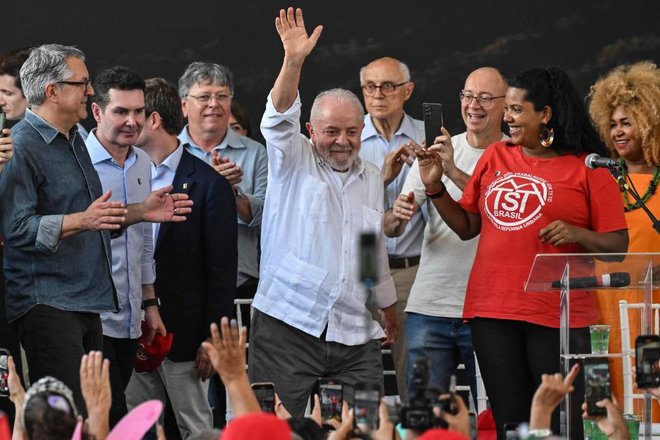Brazil’s Congress has approved a major tax reform, a political victory for leftist President Luiz Inacio Lula da Silva and a turning point for Latin America’s largest economy.
This is the first reform of the consumption tax system in Brazil since 1964, and the Chamber of Deputies approved this proposed constitutional amendment, in two separate votes, by 365 votes in the final round, while it needed 308 votes. This came during the second revision of this text after the amendments made by the Senate in November. “It is the most important reform because it regulates the entire productive system,” said Finance Minister Fernando Haddad after the vote, adding that “this reform places Brazil with the newest countries in the world”.
For his part, Artur Lera, president of the Congress, called the reform a”historic day”, stressing that it aims to “reduce bureaucracy and make the calculation of taxes more transparent”.
Such a reform, which the government calls”historic”, was desired by former executives, especially the right – wing president Jair Bolsonaro “2019-2022”, but each time he was faced with a lack of consensus.
This reform combines five taxes into one, the value-added tax, which will be divided into a federal tax and a state tax. It also lowers tax rates in sectors such as health, education and basic foodstuffs, and includes incentives for manufacturers of electric cars and biofuel-powered vehicles. The bill provides for a transition period until 2033, the date during which the new system will be put into effect. The amount of VAT will be determined later by law, but it should reach about 27 percent, which is the highest in the world, according to the latest estimates of the Ministry of Finance.
“This figure and the resulting increase in the tax burden on the service sector, will be mitigated by compensation,”the government said.
Brazilian President Luiz Inacio Lula da Silva has announced the revival of an economic program worth 348 billion dollars to invest in his country, expressing the hope that this will help the local economy return to growth. In his speech, da Silva stressed his country’s need for credibility, stability and stability, expecting that the new program will provide these three requirements stimulating the movement of foreign investment.
He expressed his belief that, with the new program, the Brazilian economy will return to growth and will take the right path, adding that “all the capabilities of the state will be harnessed to make it a success, repairing what was previously damaged”. He also stressed his full commitment to respect the environment as he promised in the past, indicating that more than 80 percent of the energy needed for future projects will be clean.


















